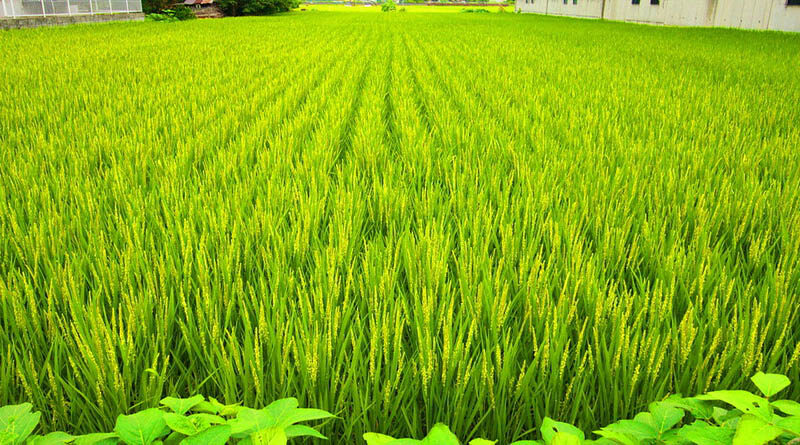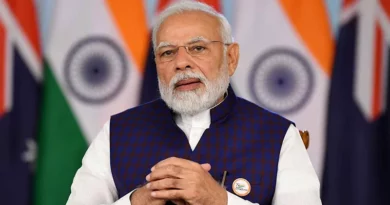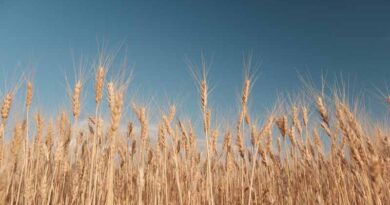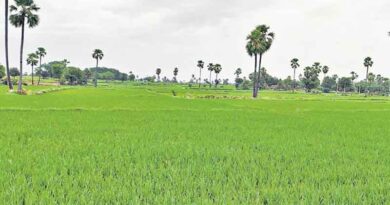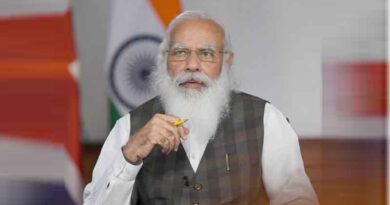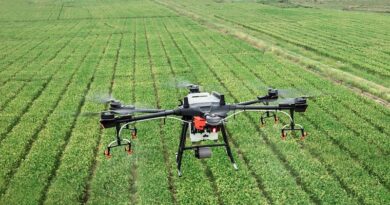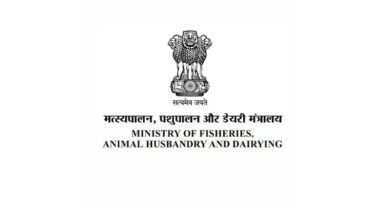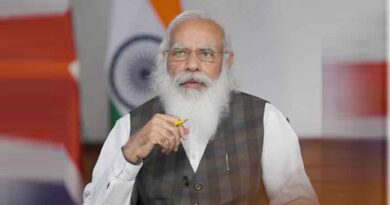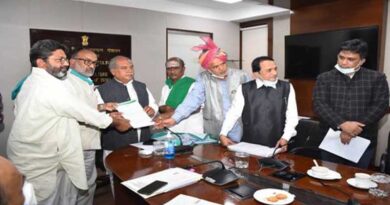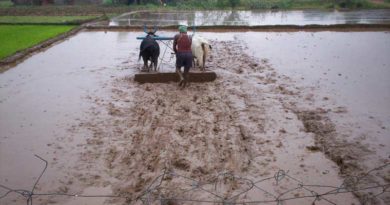Agriculture schemes under implementation for small and marginal farmers by Indian Government
19 March 2021, New Delhi: The Schemes are aimed to benefit of small and marginal farmers and are being implemented by Department of Agriculture, Cooperation and Farmers Welfare.
- Pradhan Mantri Kisan Samman Nidhi (PM-KISAN)The Government has started the Pradhan Mantri Kisan Samman Nidhi (PM-KISAN) Scheme, effective from 1.12.2018, to provide income support to all farmers’ families across the country to enable them to take care of expenses related to agriculture and allied activities as well as domestic needs. The Scheme provide a payment of Rs.6000/- per year, in three 4- monthly installments of Rs.2000/-, to the farmers’ families.
- Pradhan Mantri Kisan Maan Dhan Yojana (PM-KMY)The Government is implementing a pension scheme for all Small and Marginal Farmers (SMF) in the country, with a view to provide them social security net as they have minimal or no savings to provide for old age and to support them in the event of consequent loss of livelihood. The scheme provides for payment of a minimum fixed pension of Rs.3,000/- per month to the eligible farmers on attaining the age of 60 years. It is a voluntary and contributory pension scheme, with entry age of 18 to 40 years. The beneficiary can opt to become member of the Scheme by subscribing to a Pension Fund, managed by the Life Insurance Corporation (LIC).
- PradhanMantri Fasal Bima Yojana (PMFBY)/Restructured Weather Based Crop Insurance Scheme (RWBCIS)Based on the experience of past crop insurance schemes and with a view to include more risks under crop insurance while making it more affordable to the farmers, the flagship scheme of Pradhan Mantri Fasal Bima Yojana has been implemented from Kharif’ 2016 season.
- The objective of launching the new scheme PMFBY was to provide a simple and affordable crop insurance product to ensure comprehensive risk cover of crops for farmers against all non-preventable natural risks from pre-sowing to post-harvest, provide adequate claim amount and timely settlement of claims. The scheme is implemented by all five public sector and 13 private sector empanelled Insurance Companies (ICs). The companies are being selected by the concerned State Governments through a transparent bidding process and they also select the crops to be notified under the Scheme.
- Farmers availing loans through KCC (loanee farmers) for notified crops in notified areas are compulsorily covered under the scheme and non-loanee farmers can avail the benefits of crop insurance voluntarily.
- Farmers who enroll themselves by paying requisite premium only are covered and are eligible for benefit in terms of premium subsidy and claims under the scheme.
- Interest Subvention SchemeThe Government provides interest subvention of 3% on short-term crop loans up to Rs.3.00 lakh. Presently, loan is available to farmers at an interest rate of 7% per annum, which gets reduced to 4% on prompt repayment.
- E-NAMOnline trading of agriculture commodities is carried out in transparent and competitive manner helping the farmers with better price discovery for their produce, 585 wholesale regulated markets across the country have been integrated with e-NAM platform. Under the scheme, financial assistance upto Rs. 75 lakh per mandi for electronic weighing scale, computer IT equipments, assaying equipments, cleaning/ sorting/ grading equipments and bio- composting unit is also provided to States/Union Territories (UTs).
- Soil Health CardsTo assist all State Governments to evaluate fertility in all 12 parameters across the country and issue soil health card to farmers regularly in a cycle of 2 years. 10.73 crore Soil Health Card (SHC) in Cycle-I from 2015-17 and 9.82 crore SHCs in Cycle-II from 2017-19 have been distributed to farmers.
- Pradhan Mantri Krishi Sinchai Yojana-Per drop more cropPer Drop More Crop component of PMKSY focuses on water use efficiency at farm level through precision/Micro Irrigation. Under this scheme, drip/sprinkler irrigation is being encouraged for optimal utilization of water.
- Pradhan Mantri Annadata Aay Sanrakshan Abhiyan (PM-AASHA)To ensure remunerative prices to the farmers for their produce as announced in the Union Budget for 2018. During 2018-19, 16.15 lakh MT of Oilseeds amounting to Rs. 709110.87 lakh and 41.75 lakh MT of Pulses amounting to Rs. 2014409.00 lakh has been procured.
- Kisan Credit Card (KCC)Aims to provide adequate and timely credit support from the banking system under a single window to the farmers & recently Government approved extending the facility of KCC to the farmers practicing animal husbandry and fisheries.
10. Paramparagat Krishi Vikas Yojana (PKVY)
Government is committed to promote Organic Farming, with emphasis on sustainable productivity, food security and soil health. Government has prepared a road map to encourage the farmer for adopting organic farming with launching a new scheme i.e. Paramparagat Krishi Vikas Yojana (PKVY) for promotion of Organic farming in our country.
The PKVY Scheme is implemented in a cluster mode with min. 20 ha size and states have been asked to implement in cluster size of 1000 ha in plain area and 500 ha in hilly area to facilitate marketing of organic produce. The farmer within a group can avail benefit to a maximum of 2 ha. and the limit of assistance is Rs.50, 000 per hac., out of which 62% i.e., Rs. 31,000 is given as incentives to a farmer for organic conversion, organic inputs, on farm inputs, production infrastructure, etc., shall be provided directly through DBT during the conversion period of 3 years.
11. Mission Organic Value Chain Development for North Eastern Region
To promote organic farming in the North Eastern Region of the country for development of certified organic production in a value chain mode to link growers with consumers and to support the development of entire value chain starting from inputs, seeds, certification and creation of facilities for collection, aggregation, processing, marketing and brand building initiative.
12. Mission for Integrated Development of Horticulture (MIDH)
MIDH is being implemented by the Department w.e.f. 2014-15, for holistic growth of the horticulture sector covering fruits, vegetables, root and tuber crops, mushrooms, spices, flowers, aromatic plants, coconut, cashew, cocoa and bamboo. Government of India contributes 60% of total outlay for development programmes in all the States except the States in North East and Himalayas, 40% share is contributed by State Governments. In case of North Eastern States and Himalayan States, GOI contribution is 90%.
13. National Food Security Mission (NFSM)
The strategy is to promote and extend improved technologies, i.e., seed, micro- nutrients, soil amendments, integrated pest management, farm machinery and implements, irrigation devices along with capacity building of farmers. The major interventions/activities covered under NFSM include cluster demonstrations of rice, wheat, pulses and coarse cereals, distribution of improved varieties/hybrid seeds, need based inputs, resource conservation techniques / energy management, efficient water/ application tools, cropping system based trainings and local initiatives; award for best performing districts etc.
NFSM was launched in 2007-08 to increase the production of rice, wheat and pulses through area expansion and productivity enhancement; restoring soil fertility and productivity; creating employment opportunities; and enhancing farm level economy.
This information was given in a written reply by the Union Minister of Agriculture and Farmers Welfare Mr. Narendra Singh Tomar in Rajya Sabha in the session held on 19th March 2021.
Also Read: PM launches ‘Jal Shakti Abhiyan: Catch the Rain’ campaign on the occasion of World Water Day

